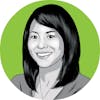 See
more of the story
See
more of the story
Before the pandemic, Steve McPherson and his wife, Calley Graham, would proactively arrange playdates for their young children. That would require checking their calendars, selecting a family and texting the parents to see if they could get their kids together.
But a year and a half later, their kids, ages 9 and 5, simply wander over to their neighbors' yards to ask if their friends can play outside.
"We've frequently called it 1980s-style parenting, the type of childhood we've all had," Graham says. "You just show up, and if your friends can play, you play. If they can't, you go home."
Something so sweetly uncomplicated can seem revolutionary for a generation of kids who've been overscheduled and spoon-fed activities their entire lives. And it was just one positive shift that emerged from the pandemic pod that the McPherson and Graham formed with two other families in their northeast Minneapolis neighborhood of Waite Park.
The three households created their social bubble out of crisis. By quarantining together, they limited their exposure to the virus and helped share the child-care load after classrooms closed. None of the three families knew one another well before COVID-19.
Now, they are reunited almost daily as kids meander from one lawn to another, and parents meet up for beer or whatever food happens to be in their fridges. The families also share rides and tools and take turns chaperoning kids to the park. The 12 of them see one another more than their own extended families.
On a recent Sunday afternoon, after sharing a meal starring McPherson's smoked brisket and sourdough bread baked by another dad in the pod, the adults reflected on how the pandemic drew them closer. They say lockdown accelerated their friendships.
"In what we call 'the before times,' it felt really easy to make excuses and say we were too busy," said McPherson. "The pandemic forced this to happen a lot quicker, sort of like how pressure creates a diamond."
Even after McPherson's family restarted some of its old pre-pandemic rhythms, including in-person school and soccer games, he has discovered that leaning on his neighbors and gathering frequently makes life easier. It's good for the kids — they can grow and free-range safely, learning from one another and trusted adults who aren't their parents.
And it's good for the parents.
"This entire group of people has seen me on good days and bad days during this entire pandemic," said pod mom Amy Softich. "There's no pressure here to bring your 'best self.' Whatever you're thinking or feeling — this group has accepted it. We've all been there for each other at different times and in different ways."
Why all of this can sound like a quaint throwback isn't a mystery. As a society, we've been told it takes a village to raise a child. But it took a global pandemic to convince many of us of that truth.
Modern parenting in middle-class America, and among wealthier families, can seem like a solo race. Working parents fight rush-hour traffic to come home from their jobs, only to spend more time in their cars shuttling kids to activities. It's no wonder that hunkering down and staring at their screens in isolation can sound like the most appealing option at the end of the day.
How did we get here? It's not uncommon for kids in the same neighborhood to attend several different schools. And many parents can remember how the 1989 abduction and murder of Jacob Wetterling changed their own childhoods. Kids' whereabouts were suddenly carefully monitored.
But pod dad Joe Ruprecht said there's also something about America's rugged individualism that conditions parents to think that they ought to go it alone.
"Reliance on other people means you've failed," Ruprecht says. "To need someone is not necessarily something that people are quick to admit to. With the pandemic, it changed a lot. People were willing to be a little more vulnerable, ask for help and pitch in to help their neighbor."
That sentiment rings true for Fartun Weli. She runs Isuroon, an organization that promotes health and connectedness among Somali women and girls in Minnesota.
"The idea of self-sufficiency is taken to extremes," she says. "We've lost the most important need for being human."
When she was 8 years old in central Somalia, she was already babysitting after school, particularly when a woman in her community was about to go into labor and needed a hand with caring for other children. All the moms pitched in, making sure the newborn and mother's needs were met for 40 days after the birth.
"The whole community is your auntie, your grandma and your caregiver," she said. "Your child's welfare is the center of every individual — your neighbor, the teacher, even the beggar."
When I told Weli about the pod parents in northeast Minneapolis, she was encouraging. "Continue it!" she said. "They might think this was just an intervention for survival. I would challenge them to think of it as a human need. Perhaps it's time to be real, vulnerable and honest."
Rest assured, the Waite Park pod is well situated to thrive. McPherson says his fire pit and a smoker — two COVID-era purchases — will get some use into the colder months. The kids will enjoy another round of pandemic birthday parties. They will bundle up in their parkas and snow pants around the fire. They will giggle uproariously over hot cocoa, sheltered from the chaos of the world.
And even after things return to normal, the village these families built will be here to stay.








